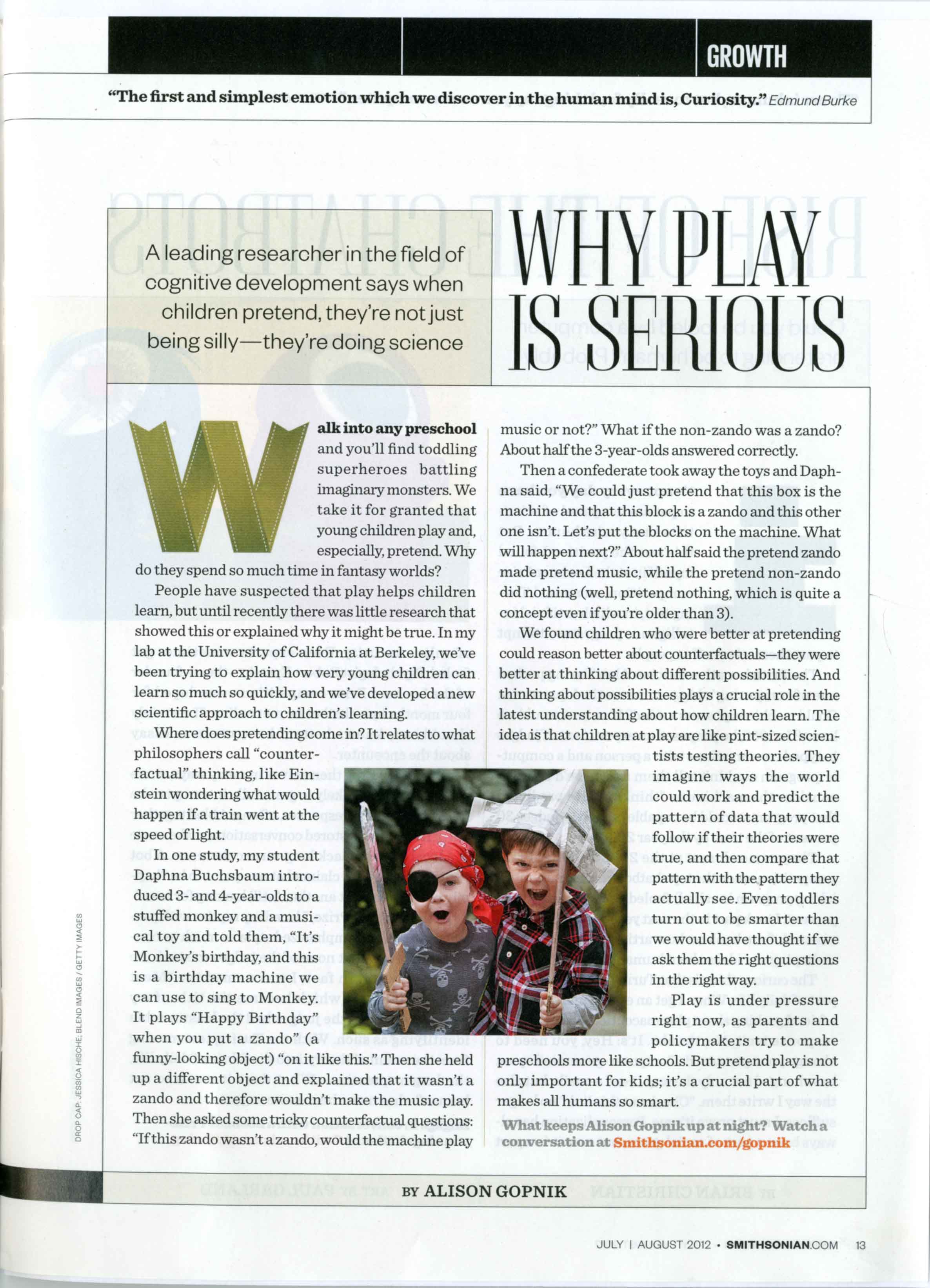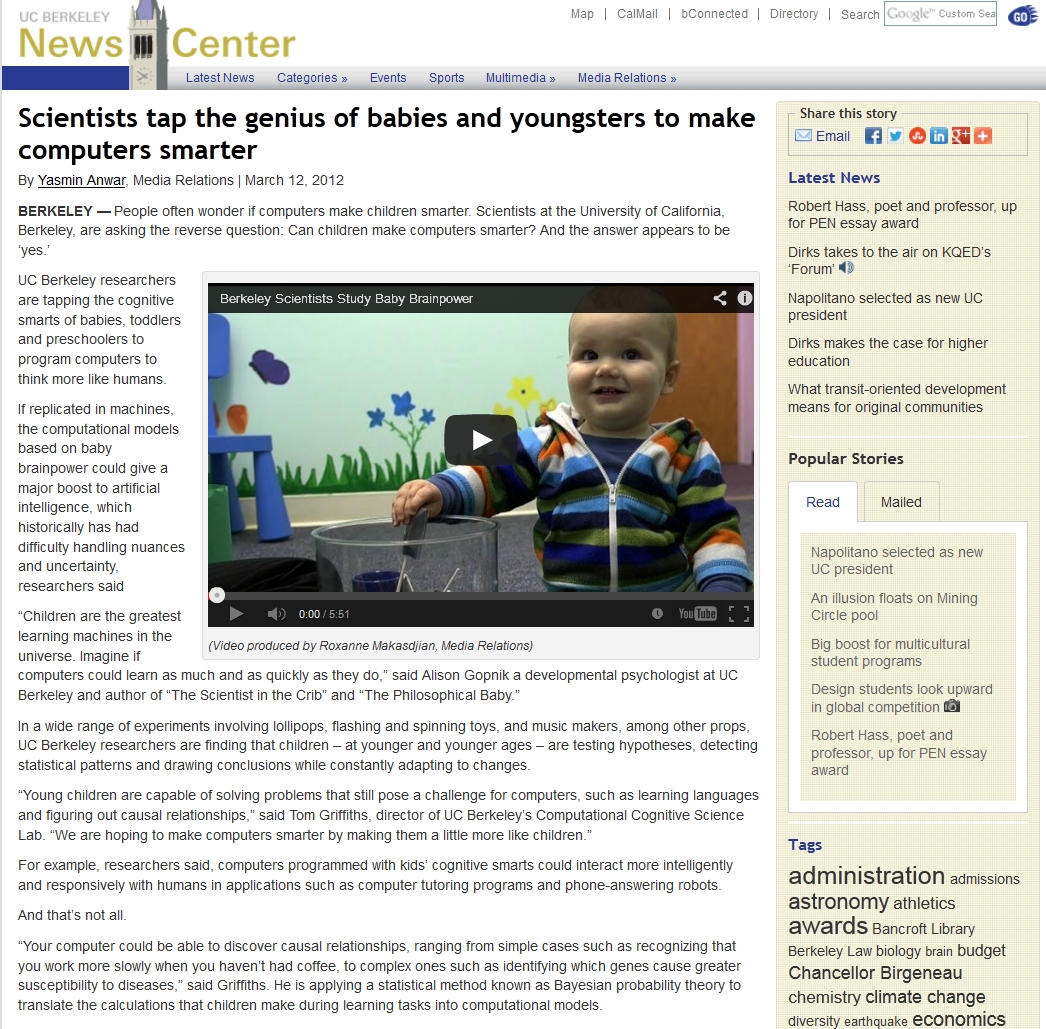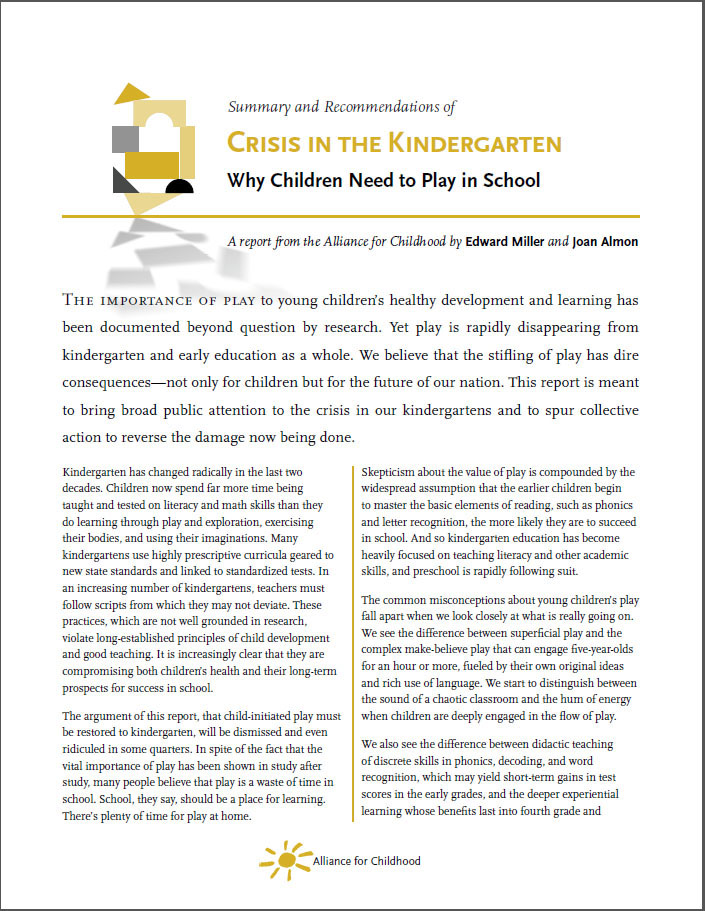GENRES IN CONVERSATION
| Reflective Writing | Informative Writing | Analytical Writing | Evaluative Writing | Problem-Solving Writing | Argumentative Writing |
Despite recent trends toward eliminating recess in elementary schools, scientists have long suspected play is crucial in children’s cognitive development. Imagine you are a member of a school board trying to decide whether or not to eliminate recess from local public schools. In the process of researching evidence of the connection between children’s play and learning, you discover a magazine article, a webcast, and a professional report. Each document focuses on children’s need to explore their world through play but uses a distinct genre to do so.
Click on the images below to read the full text.



Thinking About Genre
Question
Analytical writing is usually driven by questions about a specific situation. The writers in this conversation are intrigued by children’s ability to process complex information during play. What questions are they attempting to answer?
Question
What kinds of sources do the writers of these documents use to support their analysis? How does each document’s genre dictate which types of sources are appropriate?
Question
How does the design of each of these documents help interpret the subject for a particular audience?